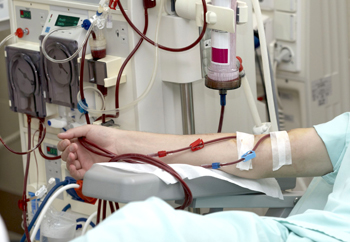Bengalur, Dec 16: The rising number of kidney ailments, due to the increasing cases of non-communicable diseases, has posed a serious challenge to the government. The limited dialysis facilities are witnessing an overload.

The Institute sees a patient overload most of the time. With 25 units in place, 60 to 65 people undergo dialysis every day, while a good number are asked to await their turn. “No matter how many units are started, they are occupied because patients are seen in growing numbers,” he said.
This Institute sees patients from West Bengal and Odisha as well. “The diagnosis is done and we put them on dialysis.
Later, they are sent back to their respective places unless their condition is serious as a very small number can be treated completely or can undergo a transplant. The rest have to be on dialysis for life,” he said.
Institute expansion
The autonomous institute will undergo expansion soon. A proposal has been sent to the government for construction of a four-storey building on a plot behind the present premises. With this, 45 more beds will be added. If approved, the construction will begin in the next six months.
PPP model
If infrastructure is one challenge, inadequate manpower is another. For a dialysis centre to be functional, at least one nephrologist, a technician and nurses trained in dialysis are a must.
However, with not enough specialists on hand, the department of health and family welfare and that of medical education have resorted to training general physicians to carry out the procedure. One doctor from each taluk is undergoing training by turns at the Institute of Nephro Urology to be able to go back and run dialysis units.
Meanwhile, Dr G Vamadev, director, department of health and family welfare, said that they had sought a report from all districts on the number of dialysis units available and the want of manpower.
“There is a proposal to start dialysis units on a public-private partnership model. The government will provide the infrastructure necessary, while the other party will run the centre with manpower and consumables,” he said.










Comments
Bloodstream analyze revealed my daddy has reversed kidney
failure cure (Myles: http://kidneydiet1.blogspot.com/2015/04/the-holistic-kidney-disease-tre…) Disease!
This procedure functions http://kidneydiet1.blogspot.com/2015/04/the-holistic-kidney-disease-tre…
Add new comment